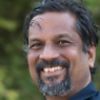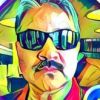7 Scientific Measurement Books That Shape Expert Insight
Curated by Sridhar Vembu, Sanjay Bakshi, and Tim Harford to deepen your understanding of Scientific Measurement


What if the numbers you trust to guide decisions actually mislead you? In fields from healthcare to forestry, scientific measurement is the backbone of progress — yet the ways we quantify and interpret data can profoundly shape outcomes, for better or worse. Understanding measurement challenges and methodologies is more critical than ever in a data-driven world.
Leaders like Sridhar Vembu, CEO of Zoho, have pointed to how metrics sometimes oversimplify human complexity, while Sanjay Bakshi, a professor and investor, highlights unintended consequences of public performance data. Economist Tim Harford warns that blind faith in numbers can erode judgment, underscoring the need for thoughtful measurement practices. Their diverse experiences reveal why mastering scientific measurement is both a technical and human endeavor.
While these expert-curated books provide proven frameworks and historic context, readers seeking tailored guidance specific to their background, industry, or goals might consider creating a personalized Scientific Measurement book that builds on these insights for a more focused learning path.
Recommended by Sridhar Vembu
CEO of Zoho, software engineer
“4/ I am a mathematically inclined software engineer and metrics are great for widgets. Metrics try to reduce people to widgets. That's why metrics don't work long term for people. Here is a great book that details the case against metrics for people:” (from X)
by Jerry Z. Muller··You?
by Jerry Z. Muller··You?
Jerry Z. Muller, a historian with a keen interest in capitalism’s nuances, wrote this book to challenge the prevailing obsession with quantifying human performance. You’ll discover how an over-reliance on metrics, intended to inject scientific rigor, can actually distort priorities across education, healthcare, business, and government. The book offers concrete examples—like how surgical scorecards may inadvertently increase mortality and how teaching to the test narrows educational goals. If you’re involved in management, policy, or any field where measurement influences decisions, this book will sharpen your awareness of when metrics help and when they hinder.
by Harold E. Burkhart, Thomas Eugene Avery, Bronson P. Bullock··You?
by Harold E. Burkhart, Thomas Eugene Avery, Bronson P. Bullock··You?
When Harold E. Burkhart teamed up with Thomas Eugene Avery and Bronson P. Bullock, their shared expertise shaped a definitive guide for anyone navigating forest measurements. You’ll find clear explanations starting from foundational statistical methods through to advanced timber measurement techniques, all approachable without heavy math prerequisites. The book covers everything from sampling designs to forest carbon assessment, making it relevant whether you’re a student or a professional forester. Its inclusion of geospatial information systems and detailed illustrations helps you grasp both traditional and modern inventory methods, ensuring practical skills that translate directly to the field.
by TailoredRead AI·
This tailored book explores the art and science of scientific measurement with a focus on your unique background and goals. It examines fundamental principles alongside specialized techniques, offering you a clear pathway through complex topics such as instrument calibration, data accuracy, and error analysis. By matching your interests, it reveals how measurement science applies across diverse fields and helps you understand both theoretical concepts and practical challenges. Blending a wide range of scientific insights, this personalized guide provides a cohesive learning experience that bridges expert knowledge with your specific needs. It encourages mastery by focusing on relevant applications and fostering a deep comprehension of measurement methods that matter most to you.
by Mesut Sahin··You?
by Mesut Sahin··You?
Mesut Sahin leverages his extensive background in electrical and biomedical engineering to offer a hands-on guide that bridges theory with practical application. This book delivers detailed laboratory exercises focused on measuring physiological variables like blood pressure and heart rate, guiding you step-by-step from sensor setup through data acquisition to analysis. The inclusion of tested electronic circuits and troubleshooting tips reflects years of classroom experience, making it particularly useful if you have a foundation in electrical circuits and want to deepen your applied skills in bioinstrumentation. This is ideal for senior undergraduates or graduate students aiming to solidify their grasp on biomedical measurement techniques with real-world tools.
by Dava Sobel··You?
Dava Sobel draws on her extensive science journalism background to illuminate the centuries-old problem of determining longitude at sea. Through the story of John Harrison's relentless pursuit to invent a marine chronometer, you gain insight into the intersection of precision timekeeping, navigation, and astronomy. The book richly details Harrison’s mechanical innovations and the fierce skepticism he faced from the scientific establishment. If you want to understand how technological persistence reshaped maritime exploration and the scientific measurement challenges behind it, this narrative offers a vivid and accessible account. It’s especially well suited for those curious about the practical impact of scientific invention and history.
by David L. Streiner, Geoffrey R. Norman, John Cairney·You?
by David L. Streiner, Geoffrey R. Norman, John Cairney·You?
Unlike most scientific measurement books that concentrate solely on theoretical frameworks, Health Measurement Scales delivers a hands-on approach to developing and validating scales specifically for subjective health outcomes. Drawing on decades of expertise, the authors guide you through crafting items, recognizing response biases such as social desirability, and selecting optimal response options to build reliable scales. You’ll find practical chapters on determining scale reliability and validity, plus ethical considerations and reporting standards. This makes it particularly useful if you’re engaged in health sciences research or clinical practice and need to assess attitudes, quality of life, or educational achievement with rigor.
by TailoredRead AI·
This tailored book explores focused, step-by-step techniques in signal processing designed specifically for scientific measurement challenges. It covers essential concepts such as filtering, Fourier analysis, and noise reduction, providing clear pathways through complex topics. The personalized format ensures the material matches your background and addresses your specific goals, making advanced signal analysis accessible and directly relevant. Crafted to guide you through practical coding examples and real-world applications, it reveals how to extract meaningful insights from measurement data with precision and confidence. Through this tailored approach, you gain both foundational knowledge and targeted skills that enhance your scientific data interpretation.
by Thomas O'Haver·You?
What started as a need to bridge theory and hands-on practice in scientific measurement led Thomas O'Haver to craft this pragmatic guide to signal processing. You’ll find detailed explanations on techniques like Fourier filtering, wavelet transforms, and nonlinear least-squares peak fitting, accompanied by real data examples and downloadable Matlab and spreadsheet tools. This book suits scientists and engineers who want to deepen their technical skills and apply signal processing confidently across fields from environmental monitoring to medical research. If you’re seeking a resource that combines theory with usable software and templates, this book lays out a clear path without overcomplicating the subject.
by Trevor Bond, Zi Yan, Moritz Heene··You?
by Trevor Bond, Zi Yan, Moritz Heene··You?
The methods Trevor Bond, Zi Yan, and Moritz Heene developed while working across psychology, education, and health sciences offer a clear path through the complexities of the Rasch model. You’ll learn how to critically evaluate Rasch measurement research and perform your own analyses, even if math isn’t your strength. For instance, Chapter 4 breaks down the nuances of the Rasch logit scale, while Chapter 10 connects Rasch measurement with structural equation modeling, demonstrating practical applications beyond theory. This book suits you if you’re a graduate student or professional in social sciences eager to grasp advanced quantitative methods with accessible explanations and hands-on examples.
Get Your Personal Scientific Measurement Guide ✨
Stop guessing—get targeted strategies that fit your unique scientific measurement goals.
Trusted by thousands of Scientific Measurement enthusiasts and professionals
Conclusion
Across these seven books, a few themes stand out: the tension between quantitative precision and human judgment, the importance of context in interpreting data, and the wide-ranging applications of measurement — from forests to biomedical signals, and from historical navigation to health scales.
If your challenge lies in understanding how metrics influence behavior and decision-making, start with The Tyranny of Metrics. For hands-on technical skills, combine Instrumentation Handbook for Biomedical Engineers with Pragmatic Introduction to Signal Processing. Those interested in measurement’s historical and psychological dimensions will find Longitude and Applying the Rasch Model invaluable.
Alternatively, you can create a personalized Scientific Measurement book to bridge the gap between general principles and your specific situation. These books can help you accelerate your learning journey and deepen your practical and conceptual mastery of scientific measurement.
Frequently Asked Questions
I'm overwhelmed by choice – which book should I start with?
Start with 'The Tyranny of Metrics' to grasp how measurement shapes decision-making. It sets a critical foundation before diving into technical or specialized texts.
Are these books too advanced for someone new to Scientific Measurement?
Not at all. Books like 'Forest Measurements, Sixth Edition' and 'Instrumentation Handbook for Biomedical Engineers' are designed for learners and professionals alike, with clear explanations.
What's the best order to read these books?
Begin with broader perspectives like 'The Tyranny of Metrics', then explore applied guides such as 'Pragmatic Introduction to Signal Processing', and finish with specialized texts like 'Applying the Rasch Model'.
Do I really need to read all of these, or can I just pick one?
You can pick based on your focus area — for example, choose 'Health Measurement Scales' if you're in health research. Each book stands well on its own.
Which books focus more on theory vs. practical application?
'The Tyranny of Metrics' and 'Longitude' lean toward theory and history, while 'Instrumentation Handbook for Biomedical Engineers' and 'Pragmatic Introduction to Signal Processing' emphasize practical skills.
Can personalized Scientific Measurement books complement these expert recommendations?
Yes! While these books offer expert knowledge, personalized Scientific Measurement books tailor insights to your goals and background, making it easier to apply principles in your context. Learn more here.
📚 Love this book list?
Help fellow book lovers discover great books, share this curated list with others!
Related Articles You May Like
Explore more curated book recommendations






